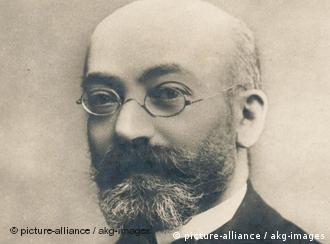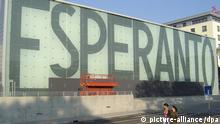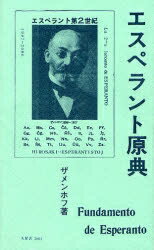Esperanto Turns 125!
MONTREAL, QUEBEC--(Marketwire - Dec. 11, 2012) - This December 15th Esperanto speakers around the world will celebrate the 125thanniversary of the creation of Esperanto. Over the course of time, a worldwide Esperanto speaking community has developed, complete with its own transnational culture.
Since the birth of this egalitarian language, thousands of Quebecers and millions of people from more than 120 countries have learned Esperanto. There are even families who use Esperanto as their home language on a daily basis and whose children grow up speaking the language.
Esperanto is officially taught in 150 universities and other institutions of higher learning and in 600 primary and secondary schools in 28 countries.
Esperanto has a rich body of literature consisting of more than 50,000 titles, with new publications released every week throughout the world.
The UN maintains consultative relations with the World Esperanto Association (UEA), and UNESCO encourages its member states to teach the language.
Lastly, the internet has given a new impetus to the spread and usage of Esperanto. Google offers its interface in Esperanto, as do Facebook and Vikipedio, the Esperanto version of Wikipedia, which, with over 170,000 articles, ranks as 28th most used language in Wikipedia.
On December 15th Quebec Esperantists will celebrate the 30th anniversary of the Quebec Esperanto Society, the 50th anniversary of the Montreal Esperanto Club, and the 125th anniversary of Esperanto.
P.S. Even Canada Post's Santa Claus answers children's letters in Esperanto!
Celebración del "día del esperanto" en varias ciudades
El próximo día 15 de diciembre (つまり今日 hoy) se celebra en todo el mundo el Día Internacional del Esperanto. Este año
la celebración es especial, ya que coincide con el 125 aniversario del
nacimiento de este idioma universal, que se ha conmemorado este año.
La mayoría de clubes y asociaciones que promueven esta lengua han
organizado actividades festivas o conmemorativas. En unos casos se trata
sobre todo de disfrutar de las posibilidades comunicativas y culturales
del esperanto. En otros se aprovechará la ocasión para informar al
público general sobre el estado actual y perspectivas de este medio de
comunicación tan desconocido.
El día 15 tendrá lugar en Madrid un conjunto de
conferencias y presentaciones con el título global “El valor del
esperanto como fenómeno intercultural”. Se celebrará durante todo el día
en el Centro Cultural Galileo, en la calle Galileo, 39, de Madrid, y
será abierta al público, quien puede asistir libremente a las
actividades que sean de su interés. Por la mañana las conferencias se
desarrollarán en español y abarcarán diversos temas relacionados con el
idioma esperanto y su estado actual. Por la tarde habrá charlas en
esperanto, pero también un recital bilingüe de poemas y la proyección de
una película sobre el esperanto, en inglés, con subtítulos en
castellano. Puede accederse a mayor información en http://bit.ly/konferenco
Los días 15 y 16 se celebrará en Granada el 17º Congreso
Andaluz de Esperanto, que reunirá a esperantistas de esa región, y
visitantes de otros lugares de España y de fuera de nuestras fronteras.
El programa y características pueden verse en http://www.esperantoandalucia.com/#
Distintos encuentros y charlas tendrán lugar en otras
ciudades, como Zaragoza (donde a comienzos de mayo tendrá lugar el
próximo Congreso Español de Esperanto), Valencia, Barcelona, Bilbao,
Santander y otras.
Si desean información más concreta, o si desean conocer más sobre el
esperanto, pueden visitar la página web de la Federación Española de
Esperanto, http://esperanto.es
o si desean ponerse en contacto con la Federación Española de
Esperanto para saber más sobre el idioma o para conocer a algunos de sus
hablantes, pueden hacerlo en la dirección info@esperanto.es.
Esperanto came into existence about 125 years ago - nowadays, it has speakers around the globe. Although political forces limited its spread in the last century, it's now becoming increasingly popular.
It's not known exactly how many people speak Esperanto - estimates range from half a million to 2 million people worldwide, most of whom live in Europe. In Germany, about 100,000 people know the "planned language."
Ludwig Lazarus Zamenhof, a doctor and philologist from Bialystok, Poland, created the language at the end of the 19th century, while the first Esperanto book was published in 1887. Zamenhof, who lived in the region when it was still a part of Russia, wanted to create a medium for understanding that would bring people from different nations and cultures together, and in the process promote world peace.
Political barriers
The fact that the language has only a few hundred thousand speakers after 125 years is due primarily to political barriers, explained historian Ulrich Lins, who was deputy director of the Universal Esperanto Association for some years.
 Zamenhof invented Esperanto to help bridge cultural barriers during the nationalist era he lived in
Zamenhof invented Esperanto to help bridge cultural barriers during the nationalist era he lived in
"Especially in Nazi Germany and in the Soviet Union, the language was considered dangerous, a means of subverting national interests," Lins told DW. Esperanto was believed to facilitate the international exchange of information - a crime in those countries at the time. As a consequence, Esperanto speakers were persecuted, Lins said.
Although Esperanto enthusiasts had numerous motivations, they were often especially free-spirited people, cosmopolitans opposed to the excesses of nationalism. "Esperanto was for those who wanted to practice grassroots internationalism," Lins said.
This often placed them near communists and socialists on the political spectrum. And that Zamenhof was Jewish colored its followers even more, in the context of the times.
"After World War II, English became so dominant that Esperanto didn't stand much of a chance," Lins explained.
But in recent years, Esperanto appears to be on the up again. The Internet has made it possible, now more than ever, to communicate across national boundaries. Esperanto could become a medium for overcoming linguistic hurdles in modern times.
International travel made easier
Roland Schnell knows from personal experience that Esperanto can make international travel easier. Schnell is a spokesperson for an Esperanto association in the Berlin area with about 100 members. He says that there are around 1,000 people who can speak the language in the region.
"Couchsurfing has been around in Esperanto since 1974," Schnell told DW. "And the language is used a lot." By couchsurfing, Schnell is referring to an international network of hosts offering free lodging to others. There is often more than just room and board involved, for example, showing guests around the area.
Schnell couldn't speak French, but he told DW that he quickly made contacts in France using Esperanto. Today, he can also understand French.
Numbers unimportant
Schnell thinks it's not important that Esperanto has fewer speakers than English or French. "The total number doesn't matter. It's about voluntarily offering a means of communication that everyone can use," he added.
 Some hotels are using the word "Esperanto" to profile their international character
Some hotels are using the word "Esperanto" to profile their international character
Esperanto continues to display its practical use, Schnell emphasized. "Wine, whisky and cigar dealers used advertisements in newspapers," he explained. Although such advertisement is increasingly difficult due to the diminishing significance of such papers in the Internet age, there are other possibilities, he told DW.
Currently, the Berlin Esperanto association is planning to attach placards to bicycles distributed around the city. In Warsaw, a public system for sharing some 1,100 bicycles is called "Veturilo," which means vehicle in Esperanto.
Schnell also said that Esperanto is being employed as an effective marketing method. Some hotels have begun to use the word "Esperanto" in their names in order to emphasize the establishment's international character.
Whether or not these initiatives are behind Esperanto's increasing numbers of speakers isn't clear, Schnell said. But the language is clearly attracting more and more followers.
![【送料無料】ニュ-エクスプレスエスペラント語 [ 安達信明 ]](http://hbb.afl.rakuten.co.jp/hgb/?pc=http%3a%2f%2fthumbnail.image.rakuten.co.jp%2f%400_mall%2fbook%2fcabinet%2f5600%2f56006793.jpg%3f_ex%3d400x400&m=http%3a%2f%2fthumbnail.image.rakuten.co.jp%2f%400_mall%2fbook%2fcabinet%2f5600%2f56006793.jpg%3f_ex%3d80x80)


